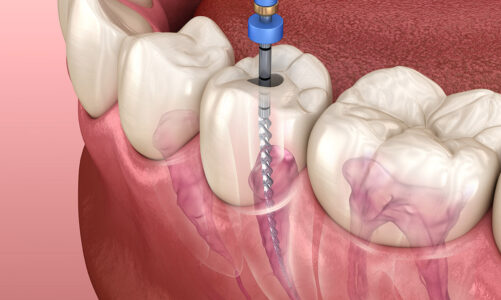Regular dental check-ups are a critical aspect of maintaining oral health and preventing potential problems before they become serious. But how often should you see a dentist? The answer isn’t one-size-fits-all and can vary based on individual health needs and risks. Here’s a comprehensive guide to help you determine the best dental visit frequency for you.
General Recommendation: Twice a Year
For most people, the standard recommendation is to visit the dentist twice a year, or every six months. This biannual schedule allows for regular cleanings, which help prevent plaque buildup, cavities, and gum disease. These visits also provide an opportunity for dentists to catch early signs of oral health issues, such as oral cancer, tooth decay, and gum disease, before they become more serious.
Factors That Influence Visit Frequency
While twice-yearly visits are a good rule of thumb, several factors can influence how often you should see a dentist:
- Oral Health Status:
- Healthy Gums and Teeth: If your gums and teeth are healthy and you maintain good oral hygiene, you might only need to visit the dentist once or twice a year.
- Gum Disease: If you have gum disease (gingivitis or periodontitis), your dentist may recommend more frequent visits, such as every three to four months, to monitor and manage the condition.
- Risk Factors:
- Smoking: Smokers are at higher risk for gum disease and oral cancer, necessitating more frequent check-ups.
- Diabetes: People with diabetes are more prone to gum disease and infections, making regular dental visits crucial.
- Pregnancy: Pregnancy can increase the risk of gingivitis and other oral health issues due to hormonal changes, so pregnant women may need additional dental care.
- History of Cavities or Plaque Buildup: If you have a history of cavities or excessive plaque buildup, your dentist might suggest more frequent cleanings.
- Age:
- Children: Pediatric dental care often starts with a first visit by age one or within six months of the first tooth’s eruption. Children typically need dental check-ups every six months to ensure their teeth are developing properly and to instill good oral hygiene habits early.
- Older Adults: As we age, dental health can become more complicated due to issues like dry mouth, gum disease, and wear and tear on teeth. Older adults may benefit from more frequent visits.
- Lifestyle and Habits:
- Diet: High sugar intake or acidic foods can increase the risk of cavities, potentially requiring more frequent dental visits.
- Oral Hygiene Habits: Poor oral hygiene practices may necessitate more regular cleanings and check-ups.
What to Expect During a Dental Visit
During a routine dental visit, you can expect the following:
- Cleaning: Dental hygienists will remove plaque and tartar from your teeth, which brushing and flossing alone can’t handle.
- Examination: Your dentist will examine your teeth, gums, and mouth for signs of disease or other issues. This might include X-rays to detect problems not visible during a regular exam.
- Education: Your dentist or hygienist will provide advice on maintaining good oral hygiene and may recommend products or techniques to improve your oral health.
Special Considerations
- Orthodontic Treatment: If you’re undergoing orthodontic treatment, such as braces or aligners, you may need to visit the dentist more frequently to ensure your treatment is progressing correctly and to manage any additional cleaning needs.
- Dental Anxiety: For those with dental anxiety, more frequent visits can help build comfort and familiarity with the dental office environment, reducing anxiety over time.
Conclusion
The optimal frequency for dental visits depends on various factors, including your overall oral health, risk factors, age, and lifestyle. While twice a year is a general guideline, some people may need to see a dentist more or less often. Regular dental check-ups are essential for maintaining oral health, so it’s important to discuss your specific needs with your dentist and develop a personalized care plan. By doing so, you can ensure that your teeth and gums remain healthy, preventing more serious issues down the road.




